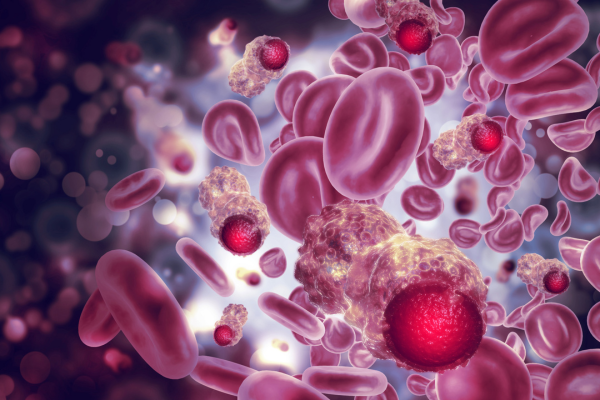The research team analyzed how immune cells express genes when in proximity to cancerous tissue.
By Pesach Benson, TPS
In a breakthrough that would revolutionize personalized cancer treatment approaches, Israeli scientists introduced new technology allowing for direct measurement of the interaction between immune cells and cancer cells in a patient’s biopsy.
“Cancer cells possess the ability to manipulate immune cells, evading natural defenses. Through our technology, we’re now able to quantify the molecular changes occurring during this interaction, offering invaluable insights into the immune response,” said Dr. Shahar Alon who led a team of researchers from Bar-Ilan University.
Employing sophisticated scanning techniques, the research team analyzed how immune cells express genes when in proximity to cancerous tissue.
Their investigation unveiled distinct genetic signatures exhibited by specific types of immune cells when encountering cancer cells.
Notably, CD8 T immune cells, renowned for their direct targeting and elimination of cancer cells, demonstrated heightened gene activation compared to CD4 T cells.
“The analysis revealed dozens of genes that are uniquely expressed in immune cells that interact with cancer cells,” Alon said.
The findings were recently published in the peer-reviewed scientific journal RNA.
By assessing the degree of immune system activation in individual patients, clinicians can make better-informed decisions about immunotherapy treatments, Alon explained.
“This analysis identified numerous genes uniquely expressed in immune cells engaging with cancer cells. Such insights provide a deeper understanding of the immune response mechanism, crucial for devising tailored treatment strategies,” he said.
Immunotherapy stands out as a promising avenue in cancer treatment, leveraging the body’s immune system to combat cancer cells with precision.
Unlike conventional chemotherapy, which often induces collateral damage to healthy cells, immunotherapy offers a more targeted approach, minimizing adverse effects.
“Scientific advancements like these transcend borders, holding the potential to benefit patients worldwide. Understanding the immune system’s response to cancer cells opens avenues for more effective treatments and improved recovery rates,” said Moshe Bar Haim, CEO of the Israel Cancer Society, which helped fund the technology’s development.
Do You Love Israel? Make a Donation - Show Your Support!
Donate to vital charities that help protect Israeli citizens and inspire millions around the world to support Israel too!
Now more than ever, Israel needs your help to fight and win the war -- including on the battlefield of public opinion.
Antisemitism, anti-Israel bias and boycotts are out of control. Israel's enemies are inciting terror and violence against innocent Israelis and Jews around the world. Help us fight back!























